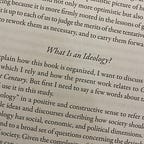You’ve probably heard of Thomas Piketty. He’s the author of Capital in the Twenty-First Century, which is considered to be on the next Keynesian theory of the 21st century and has achieved great success in his field. The book has been criticized from all sides, but it’s also been praised by many as a necessary read for understanding economic inequality and capitalism.
Piketty is a French economist who is most well-known for his book “Capital in the 21st century.” In it, he examines how capitalism works and how income inequality has increased over time.
Piketty’s book is a plea for higher taxation on wealth. He argues that the concentration of wealth has reached levels not seen since before World War II and that this inequality threatens democracy by allowing the rich to enjoy an unchallenged political influence. With his background as a French economist, he takes aim at some of the most contentious questions in economics today: how much should taxes be raised? Who should pay them? And why does so much wealth end up concentrated in such few hands?
The answers lie in two simple graphs: The first shows how global economic output has grown over time — from about half a trillion dollars per year at the beginning of the 20th century to more than $63 trillion by 2010. The second illustrates how income from capital (that is, profits) accounted for only about 15 percent of all income before World War II but nearly half after it ended — a trend line that continues today despite decades-long efforts to curb it through things like progressive taxation or confiscatory inheritance policies.
Piketty’s book is about the distribution of wealth. He focuses on a few key points:
- Income inequality
- Wealth inequality and concentration (how much money people have in total)
- The gap between rich and poor
The rising wealth of the rich is a problem for two reasons. First, it means that inequality between rich and poor people is increasing. Second, Piketty argued that this trend would continue into the future unless something changes.
Income inequality can be good or bad depending on how you look at it. It’s commonly thought to be bad because of what economists call “trickle-down economics” — if income inequality increases too much, then poor people will have less money to spend than they would if income inequality were smaller (because the wealthy are less likely to spend their money on things like food and clothing).
Critics have accused him of using data that does not take into account other factors such as globalization which could skew his results. His response to this criticism is that he does not believe that globalization has had a large impact on income inequality within countries, and therefore this factor should not be included in his analysis. However, he does acknowledge that it may have an impact on global inequality and debt levels.
The best economists are ones who can see through their own biases and recognize when they’re wrong. They don’t just say “I’m right” and then refuse to listen to anyone who disagrees with them. Instead, they acknowledge their mistakes and correct them whenever possible.
